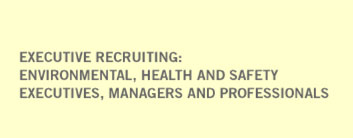
STRATEGIES FOR ACING THE INTERVIEW
You have just landed an interview for a seemingly wonderful job!
Now what? Successful interviewing is essential to lock in an offer.
These tips and strategies for effective interviewing will help
you from preparation through follow up.
Do Your Homework
Research is always the first step. Background information on employers is critical to successful preparation.
A good interviewer will ask “What do your know about our company”? and “Why do you want to work here?” Knowing
as much as possible about the company will make your interview more of a conversation, and can give you a
leg up in a competitive market. Review the company’s web site in advance, and don’t be afraid to pick
up the phone and request
details on the position, and even ask for company literature. Google the company to see what
other information you can get your hands on.
Practice, Practice, Practice
Practice makes perfect, or at least makes you better.
Do some role-playing with a friend and videotape it so you can replay
the interview and see what your strengths and weaknesses are. Prepare
answers to common interview questions;
it will help you better understand qualifications for the position.
Behavioral Interviews
Behavior-based interviewing is based on the idea that your past performance is the best predictor of future performance.
You’ll you need to be ready to give detailed responses and specific examples of your work experiences. Think of examples
where you have successfully used the skills you’ve acquired. Make a list of responses and itemize your skills, values,
and interests as well as your strengths and weaknesses. Emphasize how you can benefit the company rather than just your
own interests. Also, prepare a list of questions to ask the interviewer.
Remember, you aren’t simply trying to get a job - you’re also interviewing the employer to determine if the position are
a good fit for you.
Be Ready For The Interview
It is vitally important to be on time, which means ten to fifteen minutes early. If need be, take some time to drive to the office in advance so you know exactly where you are going. Know the interviewer’s name and use it during the interview. If you’re not sure of the name, call and ask. Be sure to bring an extra copy of your resumé and a list of references.
Remain Calm
During the interview, stay as calm as possible. Ask for clarification if you’re not sure what’s been asked and remember it is perfectly okay to take a moment or two to frame your responses so you can be sure to fully answer the question.
End the interview with a thank you, and reiterate your interest in the position. Always follow-up with a personal, hand-written Thank You note restating your interest

